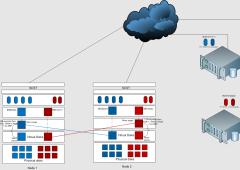SSD + ZFS/bcache/EnhanceIO + SCST = Hybrid Storage Array?
A few months ago, while “window” shopping at Ebay, I came across something that I thought to be an unbelievable deal. I found a Fusion-IO ioDrive Duo 640GB MLC PCI-E SSD for the crazy low price of.. well on second thought, maybe disclosing the price isn’t such a good idea. […]
Read more›



